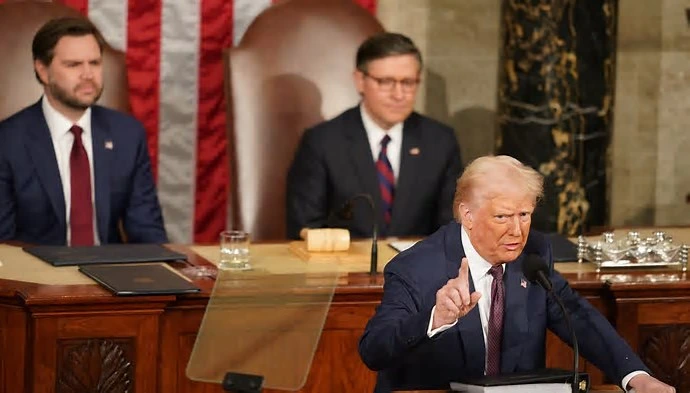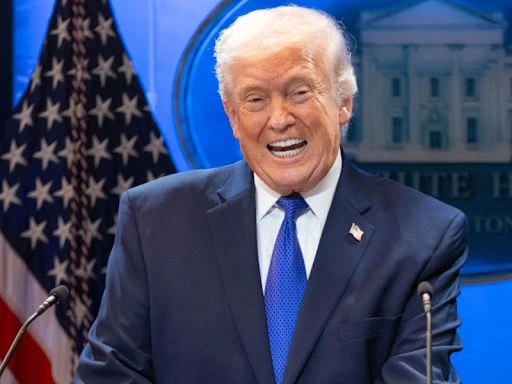01-AUG-2025,03:55PM
In a significant development that underscores global health vigilance, the World Health Organization (WHO) has taken a firm stance by issuing international travel restrictions on Pakistan due to the resurgence of wild poliovirus in certain regions of the country. This decision has drawn both domestic and international attention, as WHO imposes these restrictions not just as a preventive health measure, but as a global alert on disease containment and response strategy.
Pakistan remains one of the last few countries in the world where polio remains endemic, despite years of eradication efforts. The resurgence of cases in 2024 and 2025 has prompted WHO to take stronger action to prevent potential cross-border transmission.
Why WHO Imposes Travel Restrictions on Pakistan
WHO Imposes : Rising Polio Cases Spark Global Alarm
The primary reason WHO imposes travel-related measures on Pakistan is the reappearance of polio cases, especially in areas like Khyber Pakhtunkhwa, Karachi, and parts of Balochistan. According to health officials, the detection of multiple wild poliovirus cases in sewage and among children indicates a failure in both vaccination reach and public health systems in some regions.
The organization’s Emergency Committee under the International Health Regulations (IHR) convened recently and unanimously concluded that the ongoing spread of poliovirus from Pakistan poses a risk to international public health. As a result, WHO imposed temporary recommendations, which are binding under the IHR framework.
WHO Imposes : Mandatory Vaccination and Certification for Travelers
As part of the new protocol, WHO imposes the following conditions for travelers from Pakistan:
-
All residents and long-term visitors (over 4 weeks) must receive a dose of oral or injectable polio vaccine between 4 weeks and 12 months prior to international travel.
-
They must carry proof of vaccination—often referred to as the International Certificate of Vaccination or Prophylaxis (ICVP)—when leaving the country.
-
Border controls and airlines are advised to enforce checks to prevent unvaccinated individuals from traveling.
The goal of these measures is not to penalize Pakistani citizens, but to contain the virus and avoid the risk of global reintroduction of polio in polio-free countries.
WHO Imposes : Global Health Implications of WHO’s Decision
WHO Imposes : Preventing Cross-Border Transmission
WHO imposes these measures based on global precedent. Similar actions were previously taken when polio was spreading in countries like Afghanistan and Nigeria. Cross-border movement without proper health monitoring can rapidly undo decades of eradication work.
With global mobility at its peak, especially post-COVID-19 recovery, it becomes vital to ensure that highly contagious viruses like polio do not silently travel through human carriers. WHO’s travel restrictions are aimed at shielding vulnerable nations from unexpected outbreaks.
A Call for Strengthening Local Vaccination Efforts
WHO’s action also serves as a wake-up call to Pakistan’s public health authorities. Experts have long warned that vaccine hesitancy, misinformation, and security concerns in tribal areas are hurting eradication campaigns.
According to WHO and UNICEF, millions of children remain unvaccinated or under-immunized due to logistical and social challenges. WHO imposes travel restrictions partly as a pressure tool to accelerate national action and boost immunization drives across all provinces.
Pakistan’s Response to WHO’s Travel Measures
Government Pledges Immediate Action
Soon after WHO imposed the restrictions, Pakistan’s Ministry of Health acknowledged the findings and pledged a nationwide emergency vaccination campaign. Health Minister Dr. Nadeem Jan stated that the government would coordinate with provincial health departments, military support, and global partners like GAVI and UNICEF to scale up polio vaccination and public awareness campaigns.
Moreover, airport health counters have been activated to provide on-the-spot vaccination and documentation for outbound travelers, ensuring minimum disruption.
Public Reactions and Concerns
The general public response has been mixed. While many see this as a much-needed intervention to restore health safety, others feel it portrays a negative international image of Pakistan. Travel agencies and airlines also expressed concern over potential disruptions, especially for travelers unaware of the new requirements.
However, health experts remind that this is not about image management but about global health responsibility. As WHO imposes such restrictions, it reflects the severity of the public health threat and the importance of containing it at the source.
Lessons from the Past and the Path Ahead
Learning from COVID-19 and Past Polio Successes
Pakistan has previously made significant strides in polio elimination, especially during 2015–2018, when strong coordination between civil society, health workers, and law enforcement ensured near-zero transmission. However, disruptions during the COVID-19 pandemic led to a lapse in routine immunizations and campaign momentum.
WHO imposes travel restrictions now as a warning, not just for Pakistan, but for all countries: complacency leads to resurgence.
The path forward includes:
-
Rebuilding trust in vaccines.
-
Empowering community health workers.
-
Ensuring safe access in remote and conflict-prone regions.
-
Establishing transparent monitoring and accountability frameworks.
The Role of International Support
WHO, along with partners like Rotary International, the Bill and Melinda Gates Foundation, and the Global Polio Eradication Initiative (GPEI), remains committed to helping Pakistan reach its goals. Financial and logistical aid will likely increase following this move, provided the country shows serious intent and implementation.
In past instances where WHO imposed similar restrictions, countries managed to bounce back with dedicated effort. Pakistan’s challenge now is to turn this temporary setback into a long-term opportunity for health reform.
Conclusion
As WHO imposes international travel restrictions on Pakistan due to rising polio concerns, it sends a clear message to the global community: health security is a shared responsibility. While these measures may feel stringent, they are rooted in the principle of prevention and protection—not punishment.
For Pakistan, this is a pivotal moment. By addressing systemic gaps, restoring public trust in vaccines, and demonstrating proactive commitment, the country can not only lift the restrictions but also secure a healthier future for generations to come.
Source : ANI





